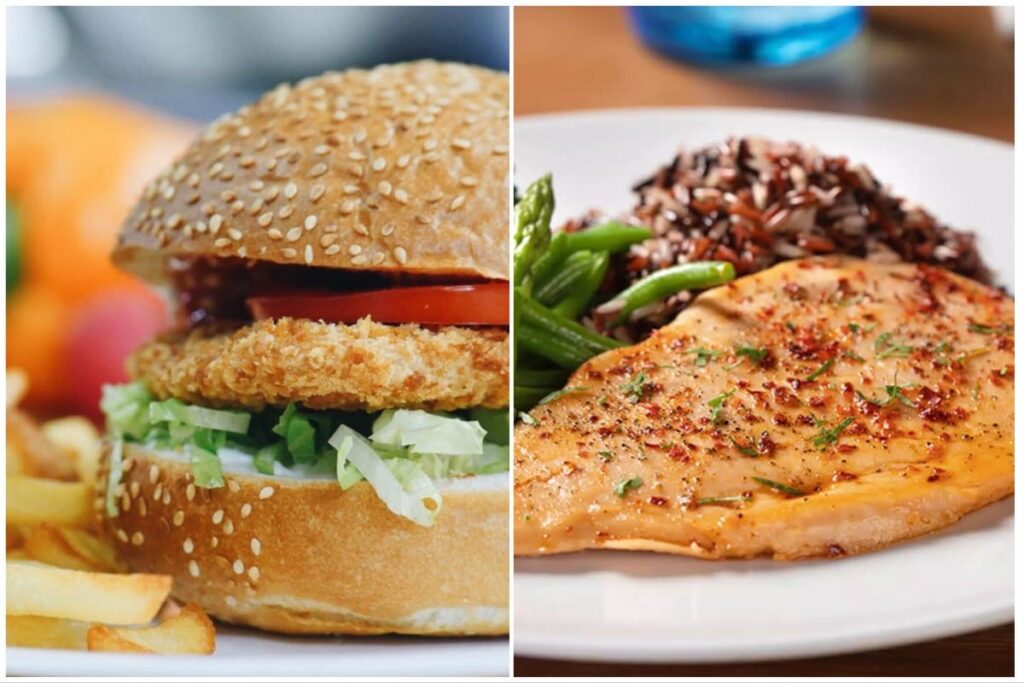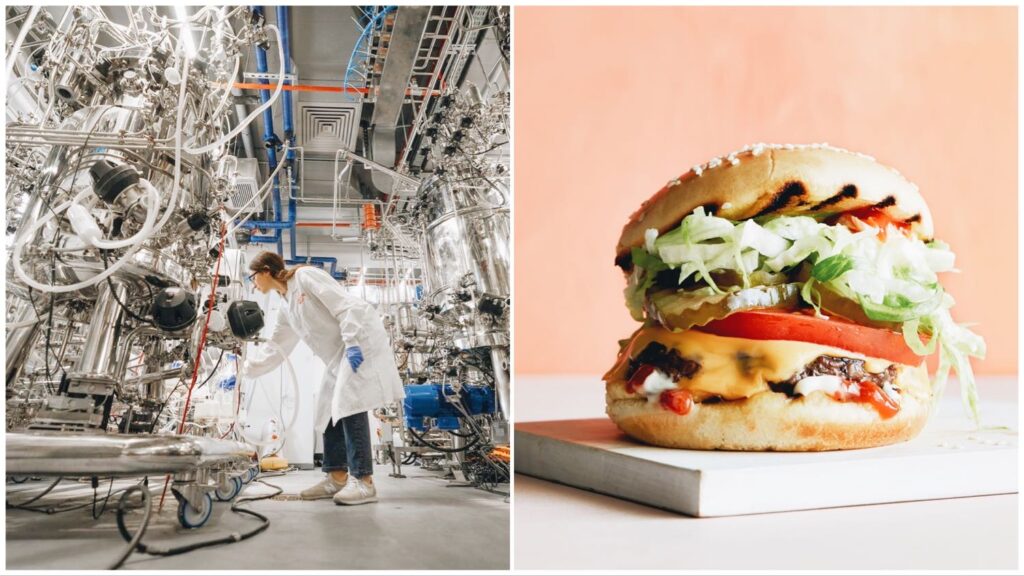Cultured meat could be the next big step for Nestlé as the company confirms its partnership with Israeli startup Future Meat Technologies Ltd.
Nestlé has placed increasing emphasis on alternative protein products—such as plant-based meat and dairy—over the last year after arriving relatively late to the now-booming vegan market.
Moving forward, the Swiss multinational appears to be attempting to get ahead of the curve on cultured meat by collaborating with key players in the sector.
According to Bloomberg, unnamed sources “familiar with deliberations” report that Nestlé is currently working with Future Meat to blend its cultured protein (also referred to as cell-based, cultivated, or “lab-grown”) with plant-based ingredients.
Blended or “hybrid” proteins such as this can now be found at supermarkets such as Tesco, Sainsbury’s, Waitrose, and Marks & Spencer in the UK. As well as the (frequently criticized) pub chain Brewdog. However, these options use conventionally farmed animal products rather than low-impact cultured meat.
While not suitable for vegans or vegetarians, hybridized protein is one way to bring the texture of plant-based meat closer to what it aims to imitate. In the case of the Nestlé x Future Foods collaboration, this will also lower the cost of the final product—a major inhibitor to the growth of cellular agriculture.
Future Meat has already heavily reduced the cost of producing its cell-based meat, and plans to begin U.S. sales by the end of 2022 at an approximate cost of $2 per 100g for chicken. For context, boneless chicken breast is currently, on average, less than £1 per 100g. While leading plant-based brand Gardein’s Chick ‘n’ Strips are usually available for less than $1.50 per 100g.

Nestlé and the Cultured Meat Market
In a press release, Nestlé confirmed that it is working on “innovative technologies to produce cultured meat or cultured-meat ingredients with several external partners and startups,” including Future Meat.
“For many years we have been investing in our protein expertise and the development of proprietary technologies for plant-based meat alternatives,” says Reinhard Behringer, Head of the Nestlé Institute of Material Sciences at Nestlé Research. “To complement these efforts, we’re also exploring technologies that could lead to animal-friendly alternatives that are nutritious, sustainable, and close to meat in terms of taste, flavor, and texture.”
According to Markets and Markets, the cell-based meat industry could be worth $20 million by 2027, while consulting firm Kearney predicts lab-grown protein will occupy a huge 35 percent of the global meat market by 2040. Plant-based and cell-based alternatives combined will make up 60 percent of the total market, a clear majority for non-traditional protein production.
“The large-scale livestock industry is viewed by many as an unnecessary evil,” say the report’s authors. “With the advantages of novel vegan meat replacements and cultured meat over conventionally produced meat, it is only a matter of time before they capture a substantial market share.”
In a world-first, cultured chicken debuted in Singapore late last year after gaining regulatory approval. It’s possible that Israel, the home of Future Meat, will be the next country to approve the sale of cell-based protein, and startup SuperMeat has already opened a dining experience to gather customer feedback on its chicken products.


